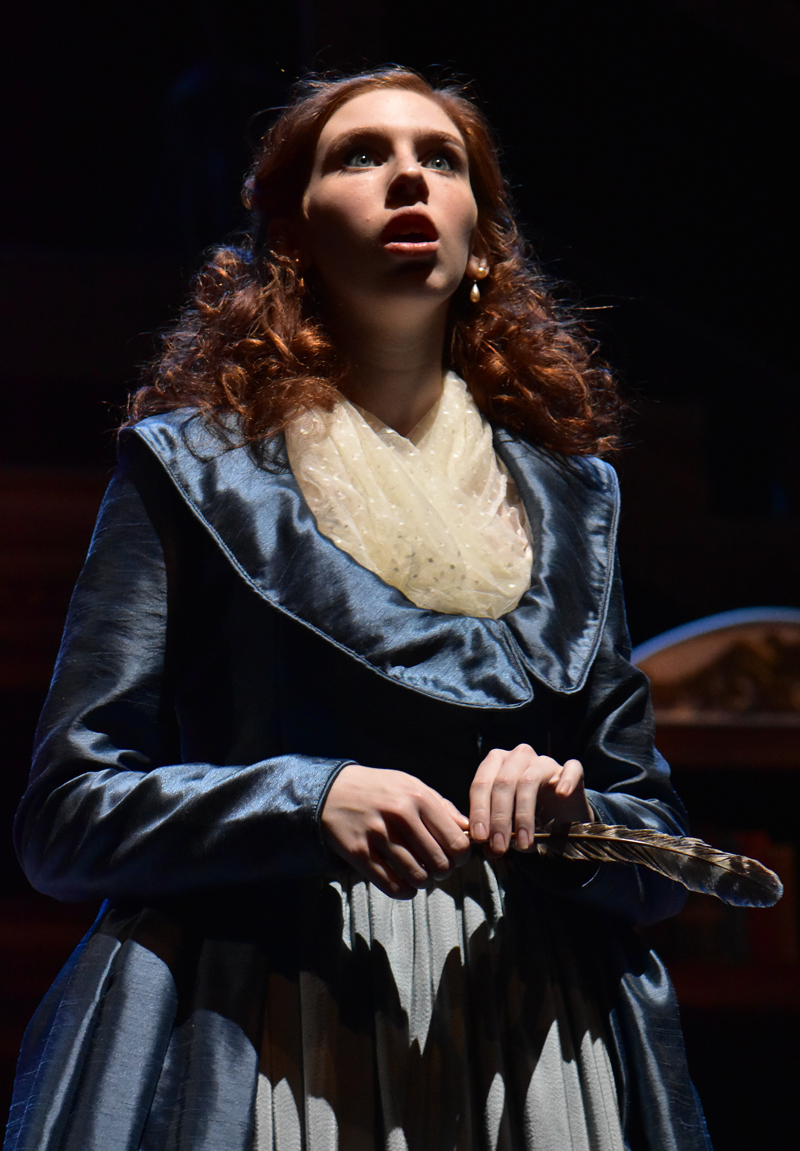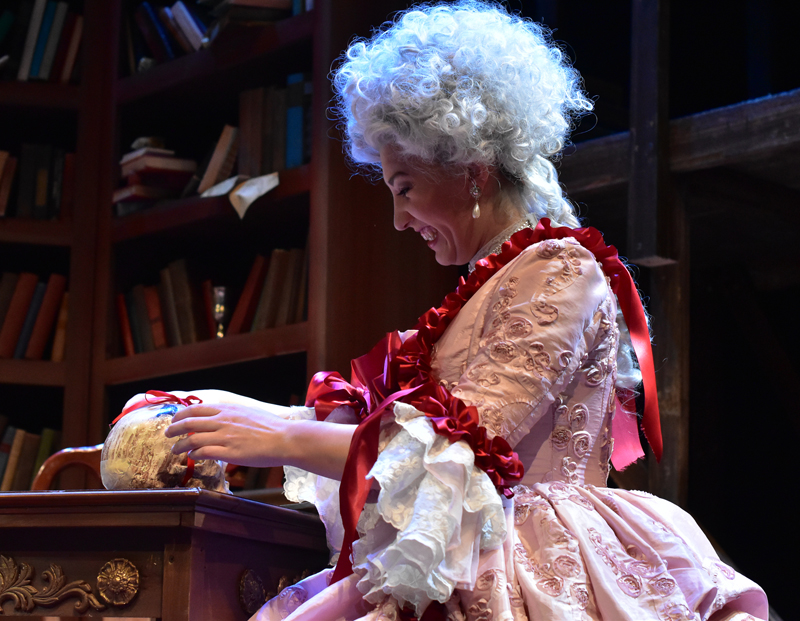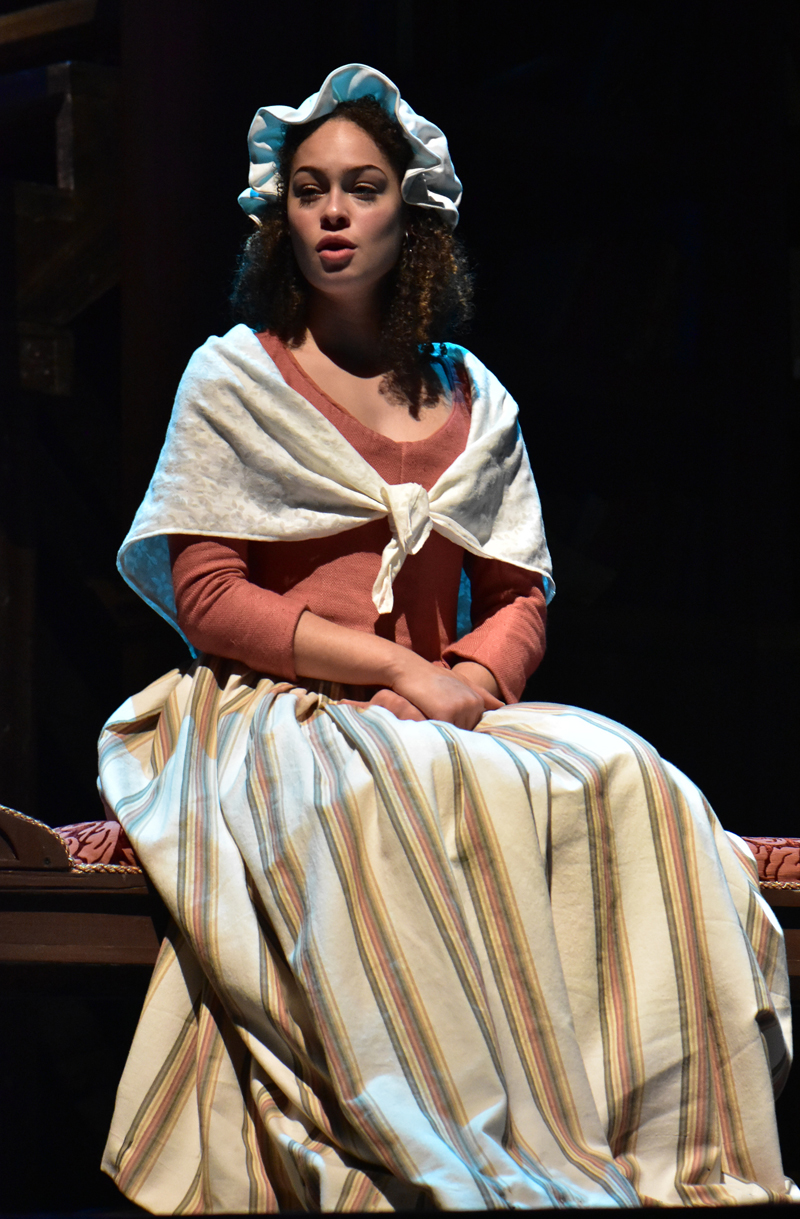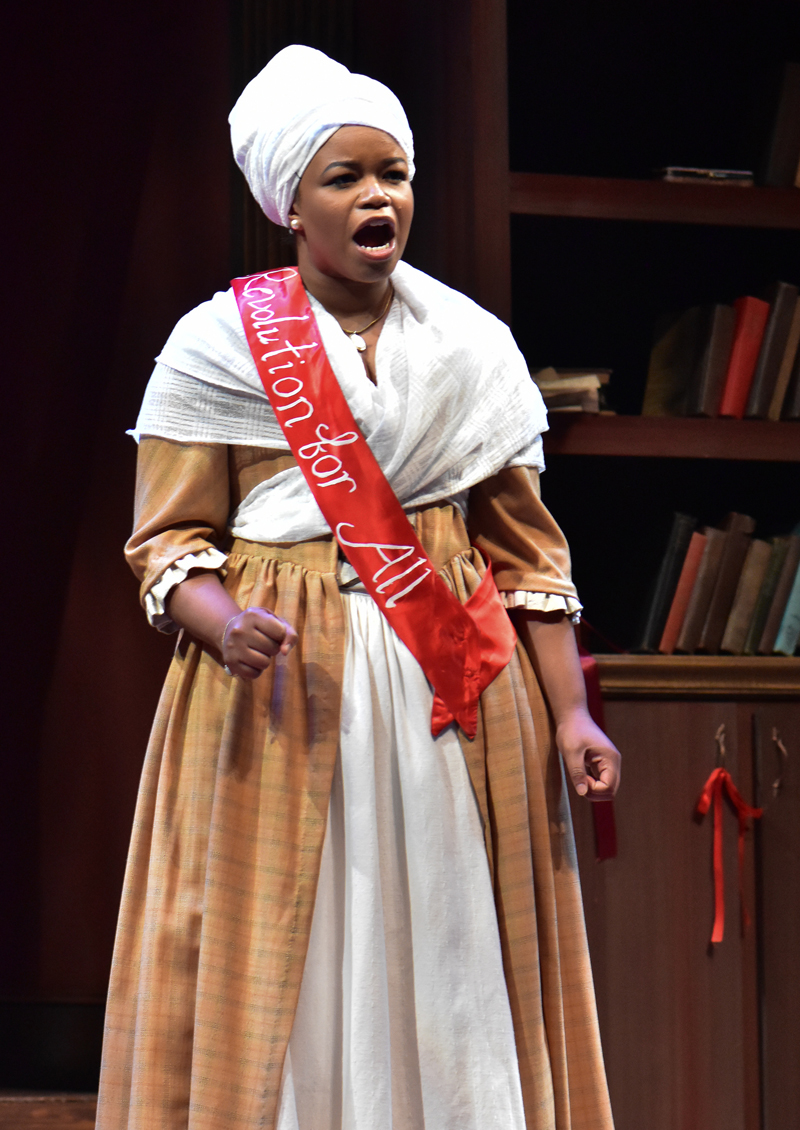Meet the student-actors in ’The Revolutionists’
Dark comedy follows four women during French Revolution's Reign of Terror
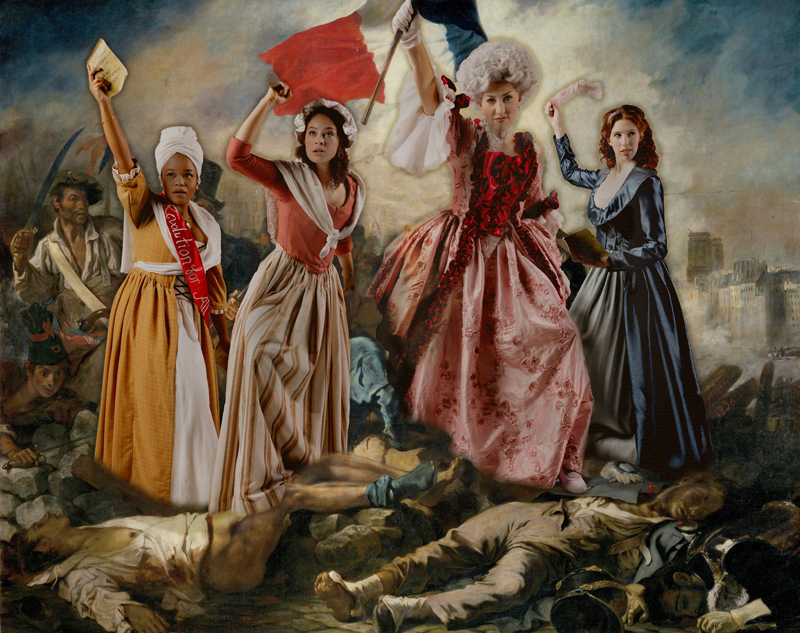
For director Tom Kremer, “The Revolutionists” is a show about four “bad-ass” women during the French Revolution’s Reign of Terror from 1793-94.
While Kremer’s description applies to the characters of Olympe de Gouges, Marie Antoinette, Charlotte Corday and Marianne Angelle, it is also synonymous with the Binghamton University student-actors leading the play: Margaret Leisenheimer, Amelia Pena, Liz Sierra and Brianna Simpkins.
“I’m going to come away from this (production) with a much stronger sense of the female voice and the female experience because I’m learning just as much from them as they are learning from me,” Kremer said.
Lauren Gunderson’s comedy about four strong women trying to change the world will be featured on the Anderson Center’s Chamber Hall stage at 8 p.m. Oct. 5-6, 19-20 and 2 p.m. Oct 21. Tickets for the opening show of the Mainstage season are: $18, general; $16, faculty/staff/alumni/seniors; and $10, students. Opening-night student tickets are $5 (discount available at the box office only).
Here is more on the four students bringing the roles to life:
MARGARET LEISENHEIMER, senior, theatre, Queens, N.Y.
The role: Olympe de Gouges, the real-life, revolutionary playwright who opens her door to the other three characters.
Leisenheimer’s take on the character: “A lot of what I’ve found in Olympe is what I’ve found in myself: What do we leave behind us when we’re done? There is the constant question of ‘What is my legacy going to be when I’m gone? How am I going to make the world better?’ Sometimes we can get lost in the idea of ‘I’m going to be the greatest person who ever lived.’ In reality, what we’re trying to do is make the world better for the next generation. Olympe gets caught up in her legacy and how she is going to be perceived as opposed to what she is going to do to change what is happening around her.”
Her fellow cast members say ...
Pena: “Being several years younger than Margaret, I’ve seen her in other shows and thought: ‘I want to work with Margaret!’ It’s so nice because she gives you so much to work with and bounce off of. She brings this role to life.”
Simpkins: “There are times when we’re not rehearsing and Margaret will say something. I’ll think: ‘Oh my God, you are Olympe.’ It’s scary. She has a nervous, exciting energy that works in a beautifully human way. Working with Margaret is so easy. You’re great, girl!”
AMELIA PENA, sophomore, theatre/business administration, Woodbury, N.Y.
The role: Marie Antoinette, queen of France, later beheaded in the revolution.
Pena’s take on the character: “I didn’t know much about her before being cast. But I have developed such an appreciation for her as a person. She was blamed for a lot of the French Revolution − and what the men were doing. She was seeking the approval of everybody and wanted everyone to like her. … It’s fun to play her. There are moments on stage when she is the ditzy queen. That’s how she was raised − everything is centered around her. But Marie also has profound moments in which she is so right about what is going on. She’s not as dumb as she lets on.”
Her fellow cast members say ...
Leisenheimer: “Amelia has taken the role and brought so much of herself into it. She doesn’t need to play the character of Marie Antoinette because she is Marie Antoinette.”
Sierra: “Amelia just loves the ditziness, the air-headedness and the ‘serve me, love-me’ of Marie Antoinette. She is all in! She loves it, she lives in, so she is it. She organically humanizes Marie Antoinette because she loves who she is. And the comedy she brings is funny!”
LIZ SIERRA, senior, theatre, Washington Heights, N.Y.
The role: Charlotte Corday, real-life assassin about to murder French revolution leader Jean-Paul Marat.
Sierra’s take on the character: “Charlotte is so passionate, as are all of the other women onstage. Charlotte expresses passion very closely to how I express passion. To access Charlotte as who she is − it’s easy for me because it’s close to me. … These themes from the French Revolution are still being fought. The issues are still here. We are the voices for what everyone wants to say − and we do it through an art form.”
Her fellow cast members say ...
Pena: “I’ve always admired that Liz is able to dive into every little thing. She analyzes every line and asks: ‘Why do I say this?’ She looks so deep into everything she says.”
Simpkins: “Liz does everything with a purpose − every move, every line and every action. She has a care that she brings (to the role). It is so artfully cared for that it makes for an incredible performance.”
Leisenheimer: “Liz has a fiery passion that can’t be ignored. It connects so deeply with her character. With that great of a passion comes a vulnerability that we have the honor and privilege of seeing in this show.”
BRIANNA SIMPKINS, senior, political science, Westbury, N.Y.
The role: Marianne Angelle, the only fictional character — a Haitian rebel who represents Caribbean women objecting to French colonial rule.
Simpkins’ take on the character: “I’m a women, gender and sexuality minor. I looked at the script and thought: ‘This character is me.’ It was eye-opening. There’s a revolution of our own that is going on in which you have the #MeToo movement, the #BlackLivesMatter movement and all of these political causes in which your voice can get lost. Finding the energy to fight is hard enough, but people also aren’t giving you the time of day because of what you look like. I’ve always been outspoken about what I believe in and care about. Marianne feels like she has to (speak out) because if she doesn’t say it, nobody will.”
Her fellow cast members say:
Sierra: “The knowledge and background she has fuels her (performance) as Marianne. It comes from such a genuine space, which is why it works so well on the stage.”
Leisenheimer: “Working with Bri has been so amazing because of her knowledge about what is happening in this play. Part of it being a poli-sci major, but she fights for what is right in her day-to-day life. Marianne also fights for those who may not have a voice or may not have the opportunity to use their voice.”

